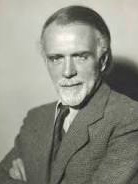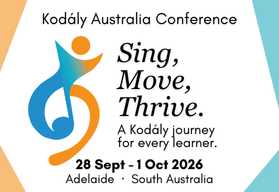Zoltán Kodály
 Zoltan Kodály was a prominent Hungarian composer, educator, ethnomusicologist, linguist, author and philosopher. Along with Bartók and Ligeti, he is one of the three major figures in Hungarian music this century.
Zoltan Kodály was a prominent Hungarian composer, educator, ethnomusicologist, linguist, author and philosopher. Along with Bartók and Ligeti, he is one of the three major figures in Hungarian music this century.
Kodály’s many compositions show a strong affinity with the folk traditions of his country and include ballad operas, orchestral works, chamber music, choral works, songs, folk song arrangements and music for children. Kodály was born on December 16, 1882 in Kecskemét, a small town in central Hungary. Much of his childhood was spent in the Hungarian villages. It was here that Kodály developed a great love for the Hungarian countryside and for the folk traditions of his culture.
From a young age Kodály showed great aptitude and interest in music. His father, an amateur musician, encouraged this interest, particularly the young boy’s interest in composition. By the time Kodály reached secondary school he was composing his own music. After completing his school education, Kodály studied at The Franz Liszt Academy (Hungary’s most prestigious music institution) and the University of Hungary where he earned a degree in Hungarian, German and then, later, a Doctor of Philosophy in linguistics.
As a composer, Kodály did much to bridge the gap between Hungarian folk music and the European art music tradition. The political climate of Hungary during the 1900’s was such that it had strong economic ties with Austria. The music of the Hungarian upper class was Viennese Classical music and the language spoken by educated Hungarians was German. The peasant population, on the other hand, spoke Hungarian and had a thriving folk music tradition of its own. Yet this distinctly Hungarian music was not regarded highly by both professional musicians and the upper class that made up the concert audiences.
In the early 1900’s, Kodály and his colleague, Béla Bartók turned their backs on the European music culture of Hungary and focused their attention on their own native folk music traditions. In 1905 they set off on the first of many expeditions to collect and gather traditional Hungarian folk music. Within a year they had arranged and published a collection of twenty folk songs.
Kodaly’s work was not immediately accepted by ” the establishment” who regarded this folk music to be uncultured, and unrefined. Yet, undeterred, Kodaly went on many more expeditions to collect and transcribe folk music. In a number of his compositions he began to incorporate actual folk melodies that he had gathered. In 1921 and 1937, Kodály and Bartók published two significant books on the subject of Hungarian folk music. The quality and scholarship of these works caused them to receive worldwide recognition in the field of ethnomusicology.
In later years Kodály was president of the Hungarian Academy of Sciences, president of The International Folk Music Council, and honorary president of the International Society for Music Education. In addition to his more than busy schedule, Kodály spent a lot of time visiting schools and talking to music educators. He was actively involved in the development and refinement of music textbooks and other materials for use in the classroom. On the day he died, March 6, 1967 he was to carry out one of his many school visits.
The Kodály Concept
Latest News
Happy New Year!
As we near the end of 2025, I extend my warmest wishes on behalf of Kodály Australia for a positive and fulfilling year ahead. Supporting our community is at the heart of our work, and this year our members have benefited from an extensive offering …
Read more
Congratulations Susie Fredline (Qld) & Dr James Cuskelly (Qld)
I write to acknowledge and celebrate two members of our community. Susie Fredline – Honorary Life Membership of Kodály Australia Congratulations to Susie Fredline (Qld), who was awarded Honorary Life Membership of Kodály Australia earlier this year. Honorary Life Membership is Kodály Australia’s highest accolade and …
Read more
NEW Member Resources
I am pleased to announce the launch of a refreshed Kodály Australia Member Portal. All members of Kodály Australia may now use the Member Portal to access an online repository of resources and professional learning. To access these resources, please explore the branch …
Read more
ASME XXV National Conference 2025
The Australian Society for Music Education (ASME) XXV National Conference will be held from September 26 to 29, 2025, at the Queensland Conservatorium, Griffith University. The call for paper and workshop presentations has been extended until this Friday, 14 February 2025. As …
Read more
Season’s Greetings from Kodály Australia
As we near the end of 2024, I extend my warmest wishes on behalf of Kodály Australia for a joyful festive season and new year ahead. This year, there has been an extensive offering of professional learning activities provided for …
Read more



